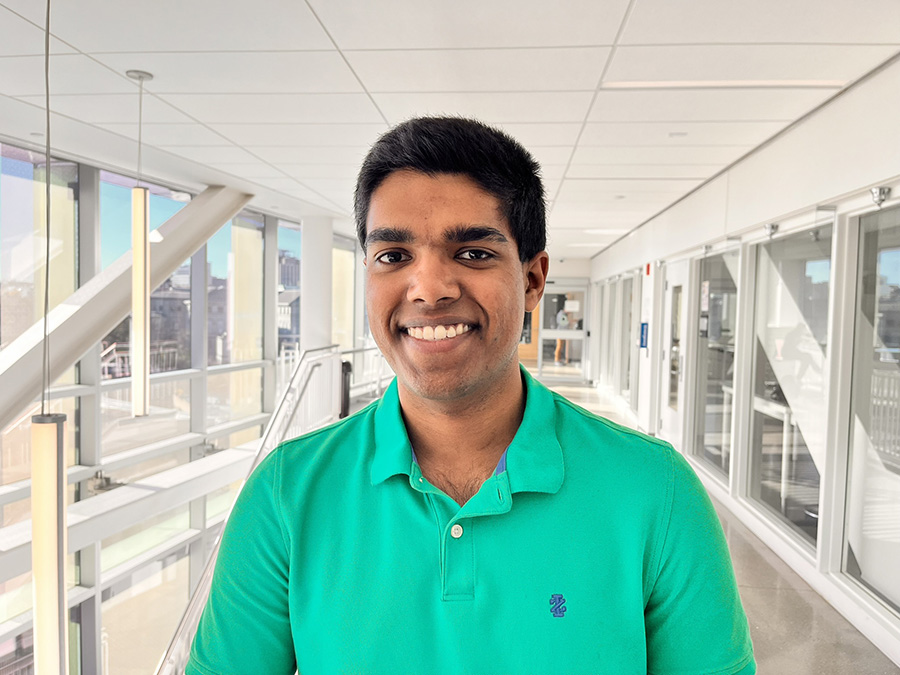
CMU BME PhD Student Awarded Highly Competitive NIH Fellowship
By Karina Shevchenko
Carnegie Mellon University’s biomedical engineering PhD student Dhruv Bhattaram has been awarded a prestigious three-year NIH F31 Predoctoral Fellowship to support his research on lung tissue engineering and disease modeling. Dhruv, a member of Dr. Xi (Charlie) Ren’s lab, focuses on the development and application of lung epithelial organoids called apical-out airway organoids (AoAOs). His work aims to establish AoAOs as a next-generation theragnostic platform for advancing airway health and understanding cilia-related pathophysiology. The platform shows potential for both high-throughput therapeutic screening and evaluating the impact of aerosolized pollution.
Dhruv completed his B.S. and M.S degrees in biomedical engineering at the Georgia Institute of Technology in 2021 and 2022, respectively, and joined the Engineered Morphogenesis Group at CMU directed by Dr. Ren in the spring of 2023. His current research, conducted within, allows him to combine his passion for image and video analysis with innovative problem-solving. His work with the AoAO platform involves pioneering new methods to quantify phenotypical differences in tissue behavior and composition, moving beyond visual observation to produce measurable insights.
Reflecting on his experience, Dhruv appreciates the culture of mutual support within biomedical engineering department. “It’s an environment of camaraderie and collaboration, where fellow graduate students are always ready to support each other. Even in shared hardship, a hardship shared is a hardship halved,” says Dhruv.
The NIH fellowship also includes collaborations with professors at both Carnegie Mellon and the University of Pittsburgh. Dr. Coty Jen’s lab in chemical engineering brings expertise in pollution particulate composition and its health effects, enabling the team to control environmental damage parameters for the AoAO model. Dr. Amir Barati Farimani’s lab in mechanical engineering, a long-standing collaborator with the Ren Lab, contributes expertise in computer vision and artificial intelligence for enhanced data analysis. Additionally, Dr. Kong Chen’s lab at the University of Pittsburgh’s department of medicine offers expertise in RNA sequencing, which will allow the team to examine the impact of drugs and pollutants on AoAOs at a single-cell level.
"I am absolutely honored to have received this award," says Dhruv. "I submitted this application as a first-year PhD student, and Dr. Ren, who reached out to me first, saw a niche within the study of AoAOs that I could fill. This recognition from the NIH reassures me that I made the right choice in joining Dr. Ren’s lab, and it motivates me to use this award to create something impactful."
Dhruv’s future aspirations are closely tied to the AoAO platform, which he believes could become a key tool in lung cilia theragnostics. After completing his PhD, he hopes to take his expertise in tissue and organoid engineering into the biomedical engineering industry, building on the skills and insights he will gain through his doctoral research.